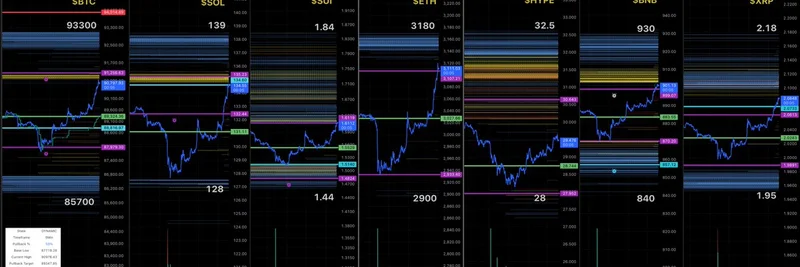In the fast-evolving world of decentralized finance (DeFi), options trading is emerging as a powerful tool for managing risks in decentralized autonomous organizations (DAOs). A recent thread on X from @TheLazySol breaks down how DeFi options connect to various governance models, including traditional DAOs like @EpicentralLabs, Futarchy via @MetaDAOProject, and Sowellian governance through @realmsdaos. This insight comes in response to a query from @8bitpenis asking how these elements tie together.
At their core, these governance structures all rely on some form of governance token that holds value. Whether it's voting on proposals or making strategic decisions, token holders face inherent risks—especially with fundamental changes like partnerships, investments, or fee adjustments that could sway token prices unpredictably.
DeFi options step in as a hedge against these uncertainties. Think of them as financial instruments that let you bet on price movements without directly owning the asset. For instance, if you're worried a proposal might tank the token's value, you could buy put options—an "insurance" bet that profits if the price drops. Conversely, if you're bullish, call options allow you to capitalize on upward swings.
A standout example shared in the thread is the "Jupuary" airdrop by @JupiterExchange earlier this year. With uncertainty around the $JUP token distribution and allocations, the market was volatile. Bearish traders who snapped up put options likely reaped rewards as prices fluctuated, demonstrating how options can protect against unknowns in token events.
More recently, a proposal from @metaproph3t for @MetaDAOProject involved minting 2 million META tokens for an OTC sale. It passed successfully, boosting the project under Futarchy—a system where markets predict outcomes to guide decisions. But for those who voted no, concerns about potential sell pressure loomed. Buying put options could have hedged that downside risk, while ultra-bullish voters might have gone for calls to amplify gains.
The beauty here is versatility: these options work across governance types without messing with the underlying structure. Technical proposals, like treasury moves, often go smoothly on-chain, but fundamental ones introduce subjectivity. Everyone has opinions on how outcomes affect token prices, and options let you act on them individually.
Importantly, as noted, options traders don't directly pump or dump the underlying token's price. This keeps speculation clean and minimizes manipulation risks, while public options data could even reveal market sentiment.
Looking ahead, @TheLazySol teases more strategies and risks to explore, with hands-on access coming soon via devnet on @opxmarkets in Q4 this year. For blockchain enthusiasts and DAO participants, integrating DeFi options could mean smarter risk management and more resilient governance.
This thread highlights why DeFi tools like options are crucial for maturing blockchain ecosystems, especially in volatile spaces like meme tokens where community-driven decisions can make or break projects. If you're diving into Solana-based DAOs or exploring hedging strategies, keeping an eye on these developments could pay off—literally.

